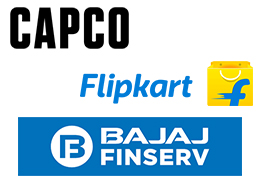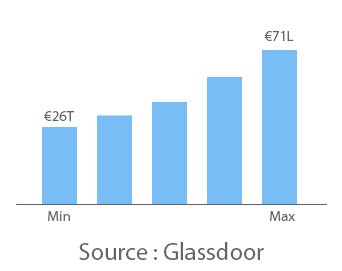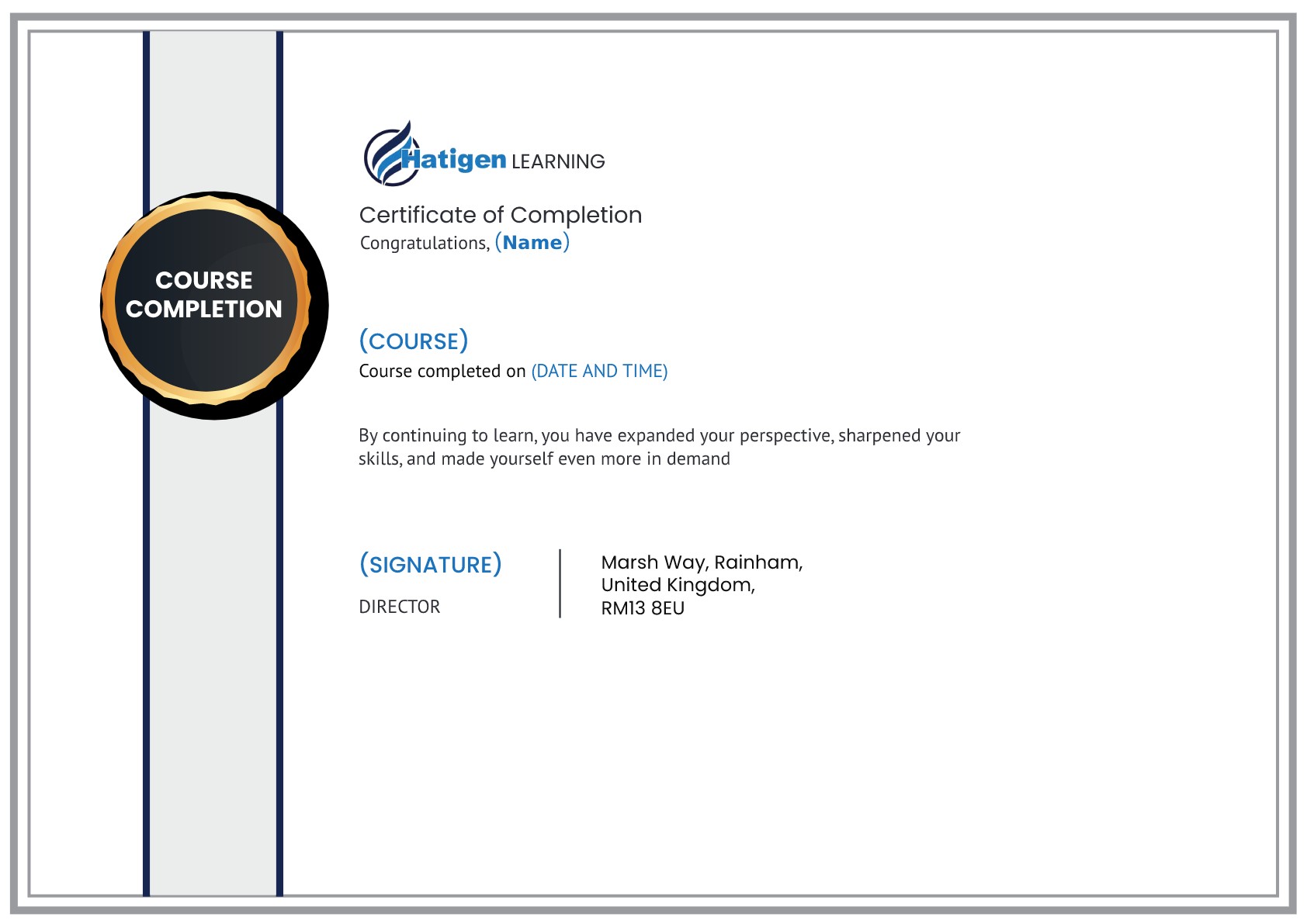Tableau Course Online – Overview
Advance your career in analytics by gaining proficiency in Tableau desktop with our Tableau certification online training course. In this course, you will learn to build visualizations, design dashboards, organize data, and make meaningful business decisions. Furthermore, as the Tableau certification course curriculum is designed by the industry experts with respect to the Tableau Desktop Certified Associate Exam, you will gain in-depth knowledge in the concepts of statistics, data connections, data mapping, etc., and acquire job-ready skills.
Tableau Certification Course Online – Key Features
- Trusted content.
- Re-learn for free anytime in a year.
- Rigorous assignments and assessments.
- Learn at your own pace.
- Mandatory feedback sessions.
- Mock-interviews.
- Hands-on real-time experience.
- Free mentorship.
- Live chat for instant solutions.
- Job ready employees post-training.
- End-to-end training.
- Download the certificate after the course.
Tableau Certification Online Training Course – Benefits
Tableau is the most popularly used tool in the field of data analytics and business intelligence. With its increasing importance, it is a highly preferred tool in various enterprises, and one who gains Tableau certification can experience a good career path with amazing job opportunities.
Designation
Annual Salary
Hiring Companies
Job Wise Benefits
Designation
Data Analyst
UK

Hiring Companies

Designation
Business Analyst
UK

Hiring Companies

Designation
Analytics Manager
UK

Hiring Companies

Tableau Certification Online Course – Training Options
Tableau Certification Online Training Course – Curriculum
Eligibility
Individuals who are willing to gain expertise and make their career in the field of analytics, IT developers, testing professionals, project managers, BI and reporting professionals, and data analysts who want to gain certification in Tableau are all eligible for this Tableau certification online training course.
Pre-requisites
There are no pre-requisites to join this Tableau course online.
Course Content
-
1.001 What is data visualization?
-
1.002 Comparison and benefits against reading raw numbers
-
1.003 Real use cases from various business domains
-
1.004 Some quick and powerful examples using Tableau without going into the technical details of Tableau
-
1.005 Installing Tableau
-
1.006 Tableau interface
-
2.001 Architecture of Tableau
-
2.002 Interface of Tableau (Layout, Toolbars, Data Pane, Analytics Pane, etc.)
-
2.003 Tableau field types
-
2.004 Saving and publishing a data source
-
2.005 Live vs extract connection
-
2.006 Various file types
-
2.007 The ways to share and export the work done in Tableau
-
3.001 Basic Charts
-
Histograms
-
Box plot
-
Motion
-
Pie
-
Bar
-
Line
-
Bubble
-
Bullet
-
Scatter
-
Tree
-
Heat maps
-
Maps
-
Text table
-
Highlighted table
-
3.002 Dual axes graphs
-
Pareto
-
funnel
-
Waterfall charts
-
Market basket analysis (MBA)
-
4.001 Connecting to Data Source
-
4.002 Tableau data types
-
4.003 Connection to Excel
-
4.004 Cubes and PDFs
-
4.005 Management of metadata and extracts
-
4.006 Data preparation
-
4.007 Joins (Left, Right, Inner, and Outer) and Union
-
4.008 Dealing with NULL values, cross-database joining, data extraction, data blending, refresh extraction, incremental extraction, how to build extract, etc.
-
4.009 Advanced joins
-
5.001 Mark and highlight
-
5.002 Groups
-
5.003 Sets (creating and editing sets, IN/OUT)
-
Constant sets
-
Computed sets
-
Combined sets
-
5.004 Bins
-
5.005 Hierarchies
-
5.006 Folders
-
5.007 Sorting and Types
-
5.008 Using the Formatting pane to work with the menu, fonts, alignments, settings, etc.
-
5.009 Editing axes and annotations
-
6.001 Filters (addition and removal)
-
6.002 Filtering continuous dates, dimensions, and measures
-
6.003 Filtering in Tableau
-
6.004 Types of filters
-
6.005 Filtering the order of operations
-
7.001 K-means cluster analysis
-
7.002 Trend and reference lines
-
7.003 Visual analytics in Tableau
-
7.004 Forecasting, confidence interval, reference lines, and bands
-
8.001 Working on coordinate points
-
8.002 Plotting longitude and latitude
-
8.003 Editing unrecognized locations
-
8.004 Customizing geocoding, polygon maps, WMS: web mapping services
-
8.005 Working on the background image, including add image
-
8.006 Plotting points on images and generating coordinates from them
-
8.007 Map visualization, custom territories
-
8.008 How to create map projects in Tableau
-
8.009 Creating dual axes maps, and editing locations
-
9.001 Calculation syntax and functions in Tableau
-
9.002 Various types of calculations, including Table, String, Date, Aggregate, Logic, and Number
-
9.003 Levels of details: fixed level, lower level, and higher level
-
LOD expressions, including concept andsyntax
-
Nested LOD expressions
-
Aggregation and replication with LOD expressions
-
9.004 Quick table calculations
-
9.005 The creation of calculated fields
-
9.006 Quick LODs
-
10.001 Creating parameters
-
10.002 Parameters in calculations
-
10.003 Using parameters with filters
-
10.004 Column selection parameters
-
10.005 Chart selection parameters
-
10.006 How to use parameters in the filter session.
-
10.007 How to use parameters in the reference line.
-
11.001 What is a dashboard
-
11.002 Building and formatting a dashboard using size, objects, views, filters, and legends
-
11.003 Best practices for making creative as well as interactive dashboards using the actions
-
11.004 Creating stories
-
Including the intro of story points
-
Creating as well as updating the story points
-
Adding catchy visuals in stories
-
11.005 Adding annotations with descriptions; dashboards and stories
-
11.006 Highlight actions, URL actions, and filter actions
-
11.007 Selecting and clearing values
-
11.008 Dashboard examples using Tableau workspace and Tableau interface
-
12.001 Introduction to Tableau Prep
-
12.002 How Tableau Prep helps quickly combine join, shape, and clean data for analysis
-
12.003 Creation of smart examples with Tableau Prep
-
12.004 Getting deeper insights into the data with great visual experience
-
12.005 Making data preparation simpler and accessible
-
12.006 Integrating Tableau Prep with Tableau analytical workflow
-
13.001 Introduction to R language
-
13.002 Applications and use cases of R
Tableau Certification Training Course Online – FAQs
Tableau is the most popular and widely used analytics and business intelligence tool that allows data representation, and data visualization, and enables you to derive meaningful insights. Due to its amazing potential, Tableau is employed by data scientists and data analysts at most organizations to leverage the large volume of data.
Tableau does not require any coding knowledge or programming experience. So, even the non-technical individuals who are aiming to make their career in business intelligence can learn Tableau and advance their career.
It is always essential to have a mentor who can guide you in your learning process. So, rather than choosing offline classes, you can join our Tableau certification training course online where you can learn from the comfort of your own home and at your flexible timings.

Reviews
Hatigen IT Services gives a good knowledge in present technology a good platform to learn advance languages
Edward
I like the courses offered with the better facilities provided
Teresa
I've had great experience with Hatigen and the training delivered was great
Ben
First of all i would like to take this opportunity to thanks the instructors the course is well structured and explained the foundations with real world problems with easy to understand the concepts
Winifred
